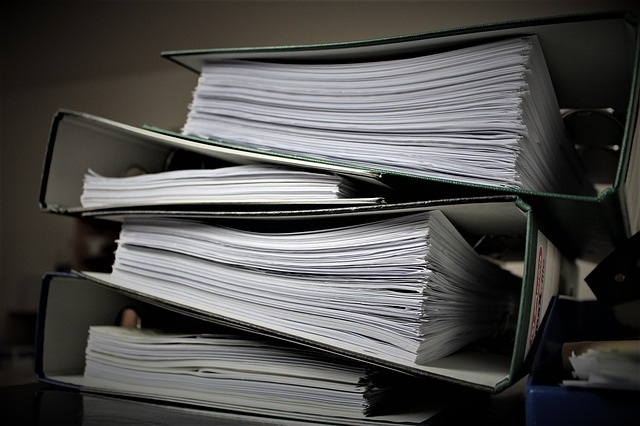3 Years
- Prospective employee job applications (even if they weren’t hired)
- Employee hiring records
- Employee FMLA records and all documentation including dates and number of leave hours taken
- Former employee I-9 forms (from the date of termination)
4 Years
- Employment tax records including timesheets, wages and tips, retirement payments, disability/sick benefits, and any additional deductions/payments
6 Years
- All business expense/purchase receipts. This includes, but is not limited to, any expenses that you plan on writing off such. Examples: travel, advertising, vehicle, meals and entertainment, office supplies, inventory items, vendor services, marketing, assets (for depreciation calculation), continuing education, delivery and postage, and dues/subscriptions, etc.
- Business Employee health benefits including election forms and former employees who are eligible for COBRA (extending their health benefits)
- Employee pension benefits – 5500 filings and the information used to prepare Form 5500, and all Summary Plan Descriptions (SPD’s).
7 Years
- Monthly credit card and bank statements
- Employee personnel records contracts (from the date of termination) which include any documentation made or used to promote, demote, transfer, lay-off, compensate or reimburse
- Employee contracts
10 years
- Foreign government tax payments
- Workers compensation (after benefits are paid) which includes all payment and documentation support
- Employee records relating to workplace accidents
Indefinitely
- All tax returns
- Any documents relating to a purchase, improvement, or sale of a property including deeds, appraisals, mortgage payments, escrow docs, and contracts
- Year-end business financial statements including check registers, profit and loss statements, budgets, general ledgers, cash books, and audit reports
- Business ownership records including formation documents, annual meeting minutes, by-laws and capital stock ledgers
- Trademark registrations and patent information
- Employee pension and retirement benefits – payments, election forms, eligibility records, and beneficiary forms
- Any signed contracts and leases still in effect
- Expired insurance policies
- Vehicle records – keep until the boat, car or motorcycle is sold
Tips:
Thanks to the digital world, record keeping is simpler and requires a lot less paper! It’s simple to organize and documents are easy to find when you need them.
Go paperless! The IRS has determined that electronic records are the same as paper originals. In some cases, electronic is preferred since paper receipts can fade and become illegible over time. Scan and save all documents and always make backups just in case. Make sure to shred downloaded documents for security purposes – don’t just throw them away!
Because financial institutions all vary with record keeping time periods, be sure to check the terms of each account to see how long they keep historical records. Make sure to download and save annual statements before they disappear!
Lastly, keep in mind that you should always keep original copies of important documents which include articles of incorporation, business licenses, partnership agreements, property purchases or sales, and any signed contracts.









